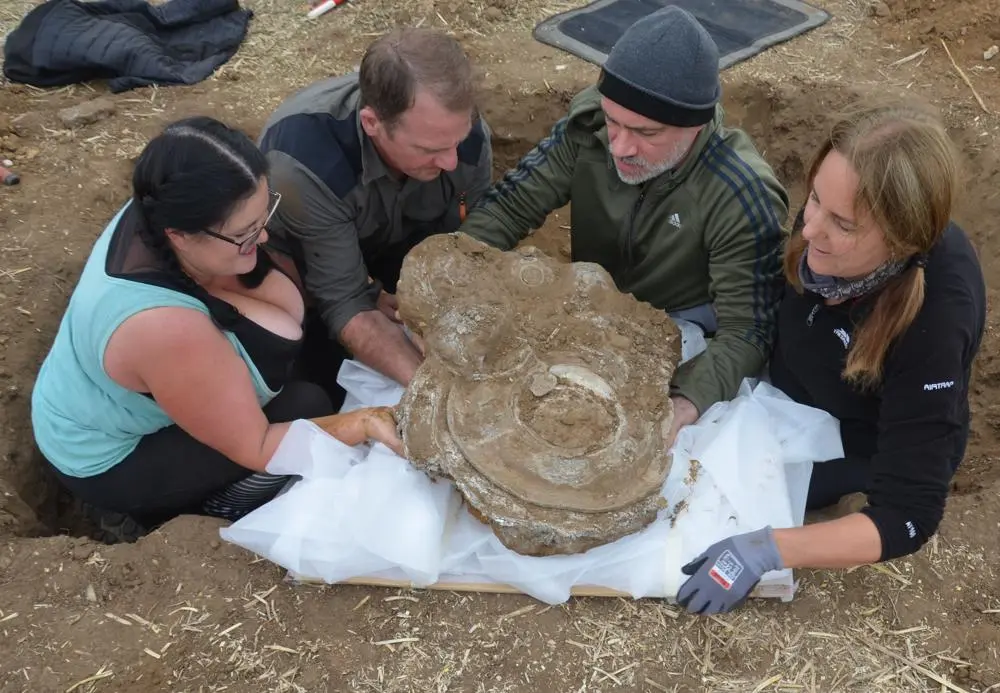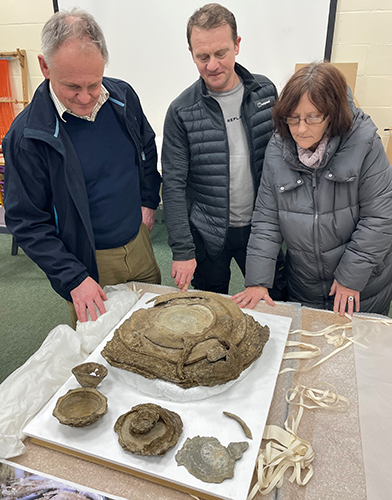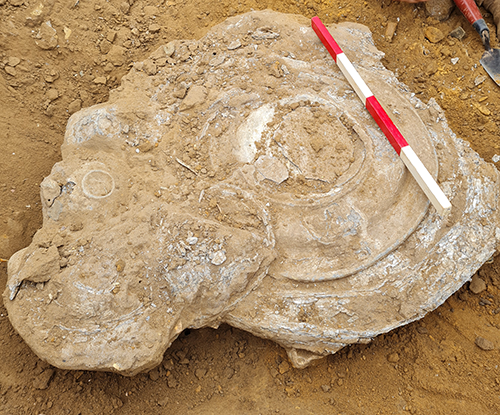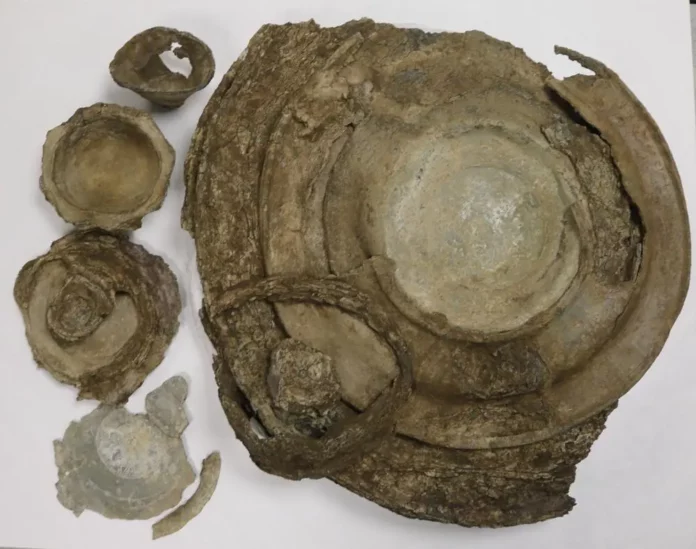In an exciting archaeological breakthrough, a rare collection of late Roman pewter plates, platters, bowls, and a cup has been unearthed in Euston, Suffolk, UK. This remarkable discovery, dating back approximately 2,000 years, sheds light on the rich history of the region and offers a glimpse into the lives of its ancient inhabitants. The hoard, now on display at the West Stow Anglo-Saxon Village and Museum near Bury St Edmunds, will be available for public viewing until January 2024.
Discovery of the Hoard

The hoard was discovered in the autumn of 2022 by local metal detector enthusiast Martin White during an East of England Rally, an organized detecting event. White, who has been detecting for about a decade, described the find as his most significant discovery to date. “It was very exciting! We quickly consulted with the Archaeological Service so that the items could be removed and recorded without being damaged. It was a privilege to be involved in the whole process, from discovery to excavation to seeing the finds go on display,” White shared.
Archaeological Significance

The artifacts were found carefully stacked in a pit, suggesting they were placed as a single group, possibly for safekeeping or as an offering. This level of preservation is rare and provides valuable insights into the practices and daily life of the late Roman period. Councillor Melanie Vigo di Gallidoro, Suffolk County Council’s Deputy Cabinet Member for Protected Landscapes and Archaeology, highlighted the significance of the find: “It is amazing to think that this fragile hoard has survived thousands of years, and being discovered by Martin, that adds to the Suffolk story.”
Expert Analysis

Faye Minter, Suffolk County Council’s Archaeological Archives and Projects Manager, provided further context on the discovery: “This is a significant discovery. The larger plates and platters were used to allow food to be served communally and the octagonal bowls may have a Christian reference. Similar hoards are found across southern Britain, including from the nearby large Roman settlements at Icklingham and Hockwold.”
Public Exhibition

The hoard has been generously donated to the West Stow Anglo-Saxon Village and Museum, where it is now proudly displayed. Cllr Ian Shipp, Cabinet Member for Leisure and Culture at West Suffolk Council, which manages the museum, expressed his enthusiasm: “We are very grateful for the kind donation of this hoard to West Stow Anglo-Saxon Village and Museum and thrilled to be able to put it on display for local people to see. It adds a new strand to the story of our past in this area in the later Roman period – at a time just before the settlement at West Stow was beginning.”
Conclusion
The discovery of the 2,000-year-old Roman hoard in Suffolk is a testament to the rich historical tapestry of the region. As these ancient artifacts go on display, they provide a tangible connection to the past, allowing visitors to explore and appreciate the legacy of the Roman period in Britain. This remarkable find not only enriches our understanding of history but also highlights the enduring importance of archaeological exploration and preservation.
